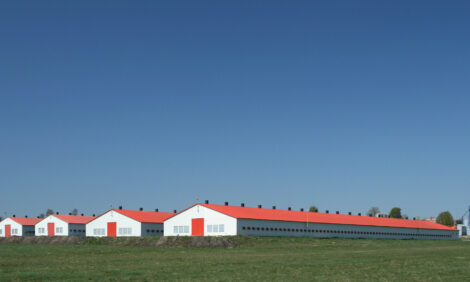



Sustainability Event Scanned the Horizon on Future of European Poultry
UK – The Poultry Science Symposium on the Sustainability of the industry in Europe closed its third and final day with a session on the environmental aspects and finally, a review and discussion session. Jackie Linden reports from the meeting in the city of Chester.In the session on Environmental Sustainability, Adrian Williams of Cranfield University in the UK spoke on how to reduce the environmental impact of poultry production.
After reviewing the research into the effects of different broiler and egg production systems on various measures – Cumulative Energy Demand, Global Warming Potential, Acidification Potential, Eutrophication Potential – using Life Cycle Analysis, he concluded that a series of small incremental changes can add up to a significant result.
The installation of heat exchangers would bring obvious benefits, he said, while litter burning also has potential.
Commenting on the challenges of meeting all of the sustainability goals simultaneously, he said we should not choose production systems driven by welfare if they are detrimental to the environment.
The final presentation was given by David Speller of the Applied Group, based in Chesterfield, Derbyshire.
He explained that he came into poultry farming 10 years ago and told of his experiences in upgrading his first old broiler farm and how he has developed the site and business so they are now economically and environmentally sustainable.
Among the more significant changes he has made in this regard were to replace the old buildings with new ones with modern technology and a high degree of automation, including the heating and ventilation. The capacity of the site has also been increased to make it a viable business and Applied Group is now also involved in running other broiler farms.
Adding that intensive agriculture is not everyone’s ideal for environmental sustainability, it will be essential somewhere if the human population wants to eat animal protein in the form of chicken and eggs, Mr Speller said.
The Symposium closed with a session on horizon scanning by poultry consultant, Dr Colin Fisher.
He reminded the audience of the keynote speech at the World Poultry Conference in 2008 given by John Hodges, who said that the then-current trajectory for global food production was not a sustainable one and that the future targets could not be met simply by using new technology.
Since that event, the World’s Poultry Science Association has set up a group focusing on family poultry production.
Dr Fisher concluded by saying that a previous speaker, Steve Ellis of 2 Sisters Food Group, had identified one of the greatest challenges facing the poultry sector today – namely, that the consumer is deeply price-conscious.
This means that any attempt by the European industry to recover its investment in more environmentally or ethically sustainable production is likely to be met by reduced purchases of their products. Consumers are likely to respond by choosing alternative products or sources of their meat, making the local industry less sustainable economically.
The Symposium closed with a lively discussion session on the actions the different sectors of the poultry industry can make in order to improve one or more of those three vital elements of sustainability – ethics, environment and economics.








